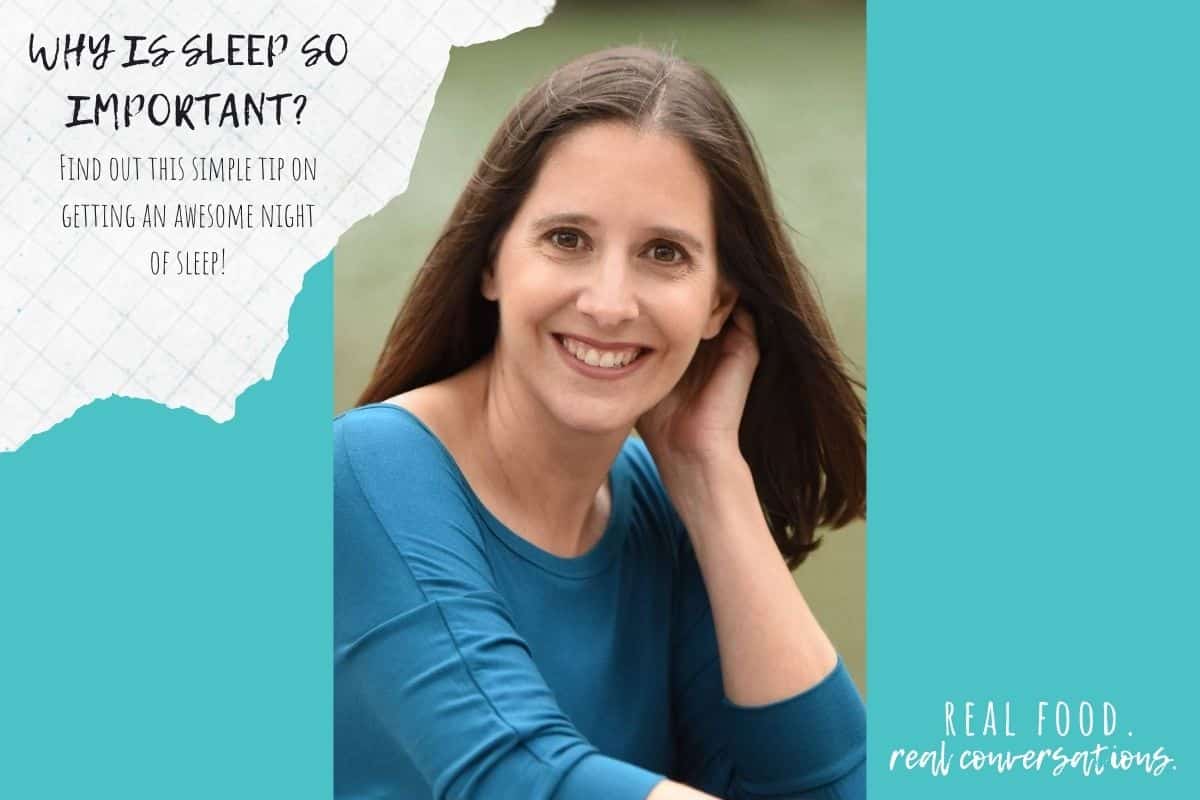While many of us live each day without much of it, sleep is important for our everyday functioning and our overall health. It does so much!

I am talking with Karen Shopoff Rooff, a certified women's health coach with more than a decade of experience empowering professional women to build a realistic healthy lifestyle, about all things sleep!
Podcast: Play in new window | Download | Embed Subscribe now! Apple Podcasts | iHeartRadio | TuneIn | Deezer | RSS | More
Karen's blog, Well Balanced Women, and health & wellness ecourses combine easy-to-understand science with realistic tips to educate body-wise women, particularly in the transition times of pregnancy and perimenopause.
She is a nationally-known public speaker on women’s health, fitness, and wellness topics. Coach Karen's busy life as an entrepreneur, wife, and mom of three kids shows that you can have balance without having it all together.
Make sure to download her FREE meditation guide so you can get one step closer to restful sleep!
The Importance of Sleep
Many of us run on fumes, the idea os sleep happening one day. We think we can chug along, even if it may not be our idea of amazing, but the reality is that our brains are suffering.
Sleep helps us recharge for the next day. It's when our body is repairing itself to be fit and ready for a new day.
Not sleeping enough causes many issues, like foggy brain, weight gain, anxiety, irritability, and illness. But how do we get the sleep we need?
Having a routine
Creating a routine before sleep, helps set our hormones so that our brain feels safe. It allows our brain to shut down. When we shut down, we are able to fall asleep.
Your routine can be as simple or complex as you want it to be. If you have a harder time falling asleep, you may need a longer routine. Doing it in the same order, helps our brain know sleep is coming.
These are things that can help cue your brain that it's time to calm down and go to sleep:
- Turning off the lights, or dimming them
- No screens
- A shower or bath
- Stretching, yoga or meditation
- Reading
Benefits of sleep
Overall, sleep makes you happy. When you are happy, you can handle things better, you are nicer and more productive
While we sleep, our body gets a break physically and mentally. And it needs that. Our muscles repair, our immune system goes to work to fight whatever germs you have, and our brain gets a break.
Our brain lives in a sea of cortisol all day, so while we sleep, it gets a break from it. This helps the hormonal regulation between insulin and cortisol, which is important for us to function well.
It also helps the regulation between leptin and ghrelin, two hormones associated with hunger and feeling full. Lack of sleep makes you want to eat junk food because it didn't get what it needed in a good night's sleep so your body craves the junk.
Not getting sleep once in a while isn't an issue. It's the chronic fatigue that starts to wear you down. Exercise, nutrition, self care...all parts of our life come together with sleep because sleep affects each of them significantly.
The brain and sleep
Sleep reduces the overall inflammation in the body, including the area around the brain. Inflammation causes plaque deposits in our brain. These are associated with things like alzheimer's and dementia.
One thing happening in our brain when we wake up is we get the largest cortisol rush of the day. Back in time, the cortisol rush was important because we were looking for danger, things like bears and being attacked.
But now we don't have these threats. So it's all about making our brain feeling safe so we can sleep through the night. Having that routine down helps this. Routine helps tell our brain, it's safe to go to sleep.
Along with putting us on alert, cortisol balances with insulin in our blood sugar regulation. So if you eat dinner early relative to when you go to bed, you are going to be on the downward trend of the insulin rollercoaster by bedtime. So when you wake up at night, that's your body's cue that it needs to eat again.
To help with this, right before bed have a small high protein snack. Things like a small handful of nuts can help you stay asleep! This simple trick has helped many of Karen's clients.
How Long Do You Really Need to Sleep?
There is no right answer to this question. In general, most of us need between 7-9 hours of sleep. But there are people that can function on less.
This also changes as we age. Children and teens need a lot more sleep than adults. The older you get, the amount of sleep you need decreases.
Overall, like many things in life, sleep varies from person to person. How we go to sleep, the routine we need and even the pillows we prefer can all be different.
The main thing is that we figure out what works for each of us and sticking to it!
Don't forget to download Karen's FREE meditation guide! Meditation is a great way to get the restful sleep you need.

PS- If you liked this episode of Real Food Real Conversations, please subscribe and leave me a review!
And tag me on Instagram whenever you're listening! I reply to all my messages!














Questions or comments? Let me know below!